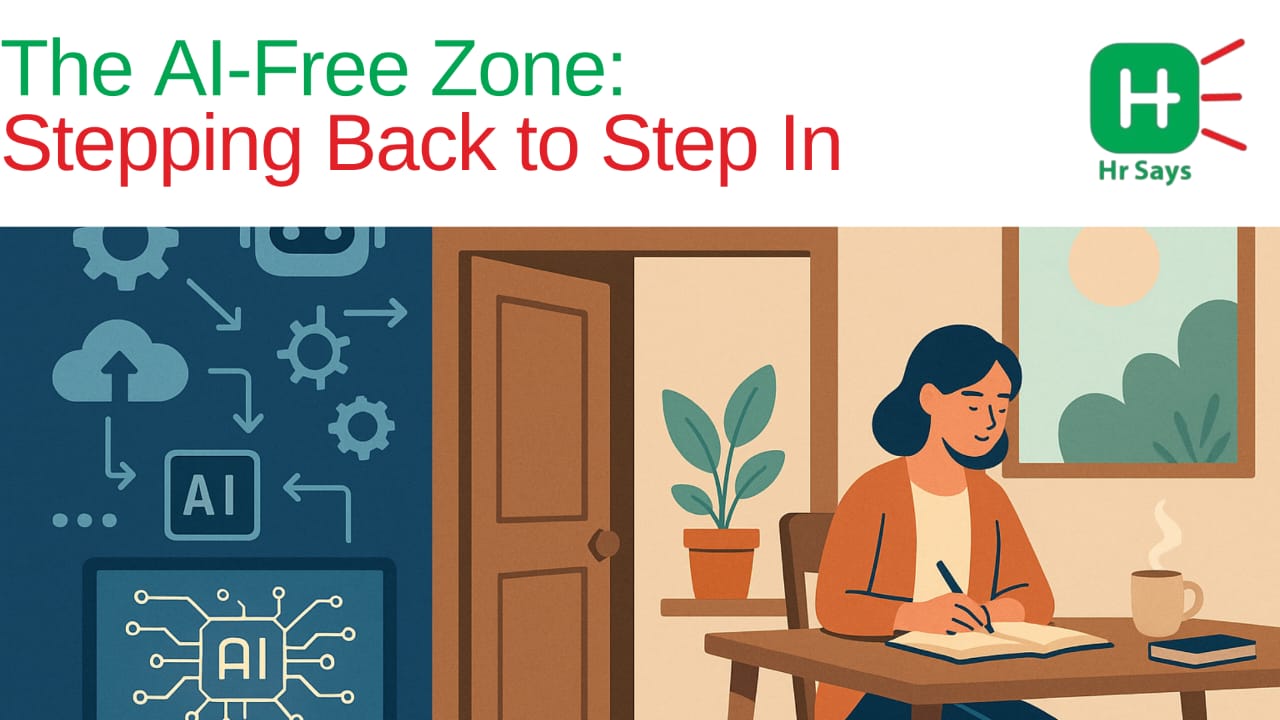Is it possible we’ve forgotten what we already knew? Every click. Every suggestion. Every sentence is half-written by a machine. We’re thinking less. Searching more. And in the quiet corners, something very human is slipping away.
The Dependency We Didn’t Notice
It didn’t begin as a problem. AI wrote faster emails. Picked better headlines. Spelled everything right. It told us what to read, what to buy, even what to think. Until one day, we stopped noticing that we were letting it think for us.
● We outsource memory to cloud storage.
● We ask tools to summarize what we haven’t read.
● We let machines finish our thoughts.
Productivity? Sure. But at what cost?
The Pause Button That Changed Everything
In an AI-free zone—no prompts, no tools—you meet your raw ideas. They’re messy. Slow. Sometimes, flat. But they’re yours.
You realize:
● Your attention is fractured.
● Your handwriting feels foreign.
● Your own words sound less confident than before.
And yet—you begin to remember what thinking deeply felt like.
The Skills We Can’t Automate
Machines can assist. But they can’t replace feeling, intuition, or discomfort. Real learning lives in the blank spaces. And when AI steps back, the old muscles wake up:
● Patience: Sitting with half-formed ideas.
● Judgment: Choosing without a search bar.
● Voice: Writing that sounds like you—not a template.
No system teaches this. No algorithm can simulate it.
The Silence Isn’t Empty
Unplugging feels strange at first. You’ll type slower. Think harder. Rely only on what’s inside.
But then:
● Your sentences get sharper.
● Your reading gets deeper.
● Your confidence returns—not because AI polished your words, but because you did.
The noise fades. And what remains is clarity.
This Is Not Anti-Tech
This isn’t a rebellion. It’s a reset. A space to sharpen human skills that can coexist with AI—but should never be replaced by it.
Because:
● Empathy can’t be coded.
● Curiosity can’t be cached.
● Originality can’t be predicted.
We don’t need to ditch the tools. Just use them with intention—not dependence.
Conclusion
An AI-free zone is not a rejection of progress. It’s a return to something quieter. More fragile. More real.
In that silence, the human voice isn’t lost. It’s rediscovered.

 What happens when we power down the tools designed to make us smarter? An AI-free zone may seem unnecessary—but it's becoming essential. In a world obsessed with automation, maybe the best thing to do is pause and listen—to ourselves.
What happens when we power down the tools designed to make us smarter? An AI-free zone may seem unnecessary—but it's becoming essential. In a world obsessed with automation, maybe the best thing to do is pause and listen—to ourselves.








.jpeg)
.jpeg)

.jpeg)





.jpeg)



.jpeg)

.jpeg)



